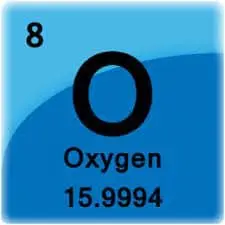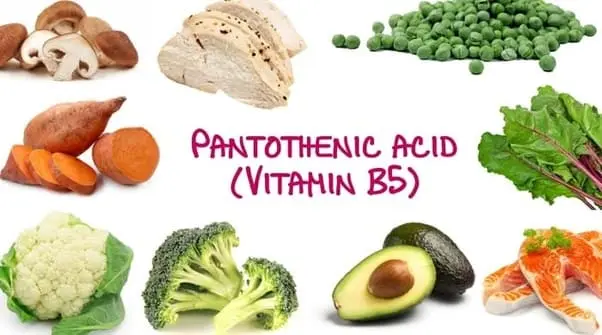Vitamins in Apple
Introduction
Apples are one of the most widely cultivated and consumed fruits around the world. Well-known types include Fuji, Gala, Granny Smith, and Red Delicious among others. The popularity of apples can be attributed to their sweet yet slightly tart taste, versatility in cooking, baking, and snacks, and extensive nutritional value.
Apples are rich sources of beneficial vitamins, minerals, antioxidants, and fiber. In particular, they contain notable amounts of vitamins C and A.
As one of the most widely cultivated fruit crops globally, apples are a nutritious dietary staple for good reason. There are over 7,500 cultivars that range dramatically in size, texture, and flavors from sweet to tart. Despite this diversity, nearly all apples confer an array of health benefits attributable to their rich vitamin and antioxidant content.
Specifically, apples contain ample vitamin C, provitamin A beta-carotene, B complex vitamins like riboflavin, and vitamin E. They also provide dietary fiber, disease-fighting flavonoid antioxidants, essential minerals like potassium, and small amounts of vitamin K.
The combination of essential vitamins and nutrients in apples can promote proper immune function, cell metabolism and energy production, bone health, healthy vision, blood clotting, and more.
All Vitamins in Apple
Vitamin C
Apples have remarkably high levels of vitamin C. Also known as ascorbic acid, vitamin C acts as a powerful antioxidant that protects cells from damage and boosts immune function. Just one medium-sized apple contains about 8.4 mg of vitamin C, which equates to 10% of the Recommended Dietary Allowance (RDA).
Amounts can be higher or lower depending on the apple’s size, variety, and degree of ripeness. For example, a Granny Smith apple may have 36% more vitamin C than a Gala. Ascorbic acid levels also decline over time after harvesting. Nevertheless, apples still rank second only to citrus fruits for the fruit sources highest in vitamin C.
Consuming them regularly helps meet the daily intake needs of this critical nutrient. Vitamin C in apples promotes collagen formation, iron absorption, and heart health, and may lower the risk of cancers and age-related diseases.
Vitamin A
While apples do not contain preformed vitamin A itself, they are abundant in antioxidant plant pigments known as carotenoids like beta-carotene. Beta-carotene converts to active vitamin A, also called retinol, in the body. As a powerful antioxidant, vitamin A protects cells from unstable molecules called free radicals.
It also supports bone development, eye health, immune function, and red blood cell production and helps maintain surface linings. Apples’ vibrant yellow-red skins have the highest beta-carotene concentrations. Just two small apples provide about 237 micrograms of the provitamin A compound.
Pairing apples with small amounts of fat maximizes how much gets absorbed and converted to retinol. With regular consumption, the vitamin A from apples can promote good vision and overall well-being.
Vitamin B Complex
Apples contain a range of B complex vitamins that are vital for energy metabolism and red blood cell function. Thiamin, riboflavin, niacin, pantothenic acid, pyridoxine, and folate are all present.
Riboflavin, also called vitamin B2, is the most abundant B vitamin with 0.1 mg or around 8% of the daily value per medium apple. It plays a key role as a cofactor for enzymes involved in energy production from fats, carbohydrates, and proteins. Riboflavin also promotes normal red blood cell formation and function. Meanwhile, every apple has a small amount of pyridoxine or vitamin B6 at around 3% of the daily recommendation.
Pyridoxine bolsters immune health supports neurotransmitter formation related to mental focus, and assists the body in breaking down homocysteine. Apples likewise contain trace levels of niacin for digestion, thiamin for metabolism, and pantothenic acid for cellular energy usage.
The collection of B complex vitamins in apples enables the body to unlock and utilize energy from carbohydrates and fiber. Getting enough vitamin B2 and other B vitamins also sustains healthy blood cell counts.
Vitamin E
In addition to vitamin C, apples have vitamin E as a powerful antioxidant in their seeds, pulp, and skin. As alpha-tocopherol, vitamin E neutralizes damaging free radicals and protects delicate cell membranes from oxidation. Its antioxidant effects are enhanced through synergistic action with vitamin C. Apples’ vitamin C regenerates and uses vitamin E to restore its antioxidant capacity.
While amounts vary, a medium apple with skin provides around 0.3 mg of alpha-tocopherol or 2% of the RDA. Vitamin E supports immune function, vision, skin health, and balance of cholesterol and fats. Intriguing research also suggests vitamin E may help prevent cognitive decline associated with Alzheimer’s disease.
The brain readily accumulates alpha-tocopherol to mitigate neuronal oxidative damage that can lead to dementia development. Beyond apples’ vitamins and minerals themselves, additional polyphenols like quercetin that concentrate in apple peels also have neuroprotective antioxidant effects.
Vitamin K
While not exceptionally high, apples do contain small amounts of vitamin K. This fat-soluble vitamin plays an essential role in proper blood clotting and coagulation. It activates proteins that regulate calcium transport in bones and tissues. Just one medium apple provides around 2.7 mcg of vitamin K.
This equates to a modest 2-3% of the Recommended Daily Intake but can contribute to overall needs being met. The vitamin K in apples is primarily in the form of phylloquinone or K1. Sources estimate the concentration at around 0.25 to 0.35 mcg per 100 grams of apple. Though levels are relatively low, eating apples regularly can help supply the vitamin K we need for critical cardiovascular functions and bone mineralization.
Other Nutrients
Beyond vitamins, apples have an array of other protective compounds like dietary fiber, potassium, and polyphenol antioxidants. The fiber content of around 4 grams per medium fruit regulates digestion and balances blood sugars and cholesterol. Apples also promote good heart health with potassium levels of 195 mg per apple.
Additionally, their peel concentrates beneficial plant polyphenols like quercetin, catechin, phloridzin, and chlorogenic acid. These function as antioxidants to combat inflammation underlying chronic diseases. With its mix of prebiotic fiber, minerals, and antioxidant plant compounds, apples offer a synergistic nutrient profile that confers multiple health benefits.
Summary
Firstly, apples are packed with immune-supporting vitamin C and antioxidant vitamin A as beta-carotene. Just one medium fruit contains around 10% of the daily recommended vitamin C, which assists in iron absorption and collagen formation. Apples also harbor antioxidant carotenoids that convert to active vitamin A/retinol in the body for vision, reproductive health, red blood cell production, and immune support through white blood cell function.
Additionally, apples house B complex vitamins like riboflavin, pyridoxine, and thiamin to unlock energy use from food and generate healthy red blood cells. Vitamin E alpha-tocopherol rounds out the vitamin profile as a free radical-neutralizing antioxidant and dementia reducer. Lastly, apples furnish a nominal amount of clotting factor vitamin K.
Further beneficial compounds in apples include their prebiotic fiber for digestive and cardiovascular wellness, potassium for proper fluid balance and nerve transmission, and antioxidative polyphenols. Apples’ fiber, flavonoids, carotenoids, vitamin C, and vitamin E all provide synergistic antioxidant and anti-inflammatory potency as well. The unique phytonutrient profile delivers supplemental nutrition.
FAQs
Which vitamin is most abundant in apples?
Vitamin C is undoubtedly the most plentiful vitamin in apples by a large margin. A medium apple can contain around 8-10 milligrams of immune and metabolism-supporting vitamin C.
Can apples provide a complete daily intake of any vitamin?
While rich in vitamin C, apples would need to be eaten in very high quantities to completely meet needs for the day approaching 75-90 mg. Apples are more effective in providing percentages of recommended vitamin A, B, E, and K intake instead.
Which apple varieties have the most vitamins?
Heirloom and locally-grown apple species tend to harbor higher phytochemical content and comparable vitamin levels to commercial types. But most apples, including cheaper mass-produced ones, offer a sound vitamin package.
What other nutrients do apples contain?
In addition to vitamins, apples provide dietary antioxidants like flavonoids, carotenoid pigments, chlorogenic acid, prebiotic fiber, free radical-scavenging polyphenols, minerals like potassium, calcium, and phosphorus, and trace amounts of healthy fats and carbohydrates.
Can dehydrated apples provide the same vitamins?
Drying concentrates apple nutrition into a smaller serving. Although some water-soluble vitamin C and B vitamins slightly diminish through processing methods, dried apples retain antioxidants, provitamin A, vitamin E, K, and minerals. Rehydrating dried apples can help restore additional losses. Overall, they make a shelf-stable, nutritious alternative to perishable fresh fruit.
References
- Cdn, B. C. M. R. C. (2022, August 1). Apple Nutrition Facts and Health Benefits. Verywell Fit. https://www.verywellfit.com/apples-nutrition-facts-calories-and-their-health-benefits-4117992
- BSc, A. A. (2023, July 12). Apples 101: Nutrition Facts and Health Benefits. Healthline. https://www.healthline.com/nutrition/foods/apples






